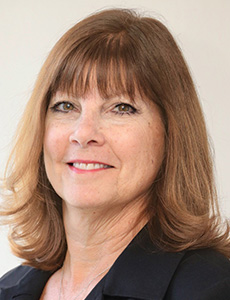Master Your Craft: Unveiling the Essential Insurance Designations for Career Advancement

Risk and insurance designations help professionals demonstrate mastery of relevant skills and validate to employers that they have
those skills. According to Adam Carmichael, CPCU, president of The Institutes Knowledge Group and Ethics Counsel, there are two
key insurance designations that insurance professionals seek out: the CPCU and ARM (associate in risk management) designations.
As Carmichael explained, the CPCU designation is designed to provide risk management and insurance business leadership skills to help professionals think critically, solve business problems and make strategic decisions. The CPCU program includes eight courses and has ethics and experience requirements. The program is self-paced and is designed to be completed in 18 to 24 months.
The ARM designation focuses on gaining risk management skills and a holistic understanding of risk assessment and treatment. The ARM designation consists of three courses and is self-paced, and most people finish within a year.
As far as new designations, The Institutes’ AIDA (associate in insurance data analytics) is a growing designation for risk and insurance professionals.
“Given the ever-expanding amount of data available, analytics skills are a differentiator in the market, and this designation focuses on expanding those skills,” Carmichael said.
Carla Corrado, manager of talent development at PLM, said her company leans heavily on insurance designations through The Institutes: “There are several common designations we see employees pursue. For early-career professionals, we often find a few entry-level tracks to be valuable,” Corrado said.
To start, most employees pursue their AIS (associate in insurance services), which covers insurance basics. From there, staff members tend to branch off based on their interests. Customer service-oriented professionals often target courses to become accredited customer service representatives (ACSR), and loss control professionals tend to aim for the ARM.
Julie Steege, VP, talent development at Philadelphia Insurance Companies (PHLY), explained that for each of the designations, potential designees are required to complete a series of classes as well as pass a national exam for each class. In addition, CPCU candidates are required to complete the CPCU Matriculation and have a minimum of two years of industry experience.
“PHLY employees now have easy access to a wide array of on-demand course content from The Institutes through our internal learning management system to prepare themselves for exams,” Steege said. “We also offer instructor-led courses that help employees prepare for the exams associated with some of the most common designations.”
Continuous Evolution
A strong emphasis on designations has been part of the industry — and part of the PHLY culture — for decades. More recently, PHLY has incorporated the earning of specified designations in several of the company’s trainee programs in marketing and underwriting.
Steege noted that for many years, much designation content was taught in classrooms and the onus was on employees to seek out and attend the classes, often taught by tenured professionals or members of a training team.
Employees benefited from these interactions with industry professionals in many ways. The evolution of online content and virtual access to course content and exams allows for a much more personal and self-managed experience, which appeals to the younger generations.
Courses and exams can be taken when the individual can fit them into their schedule: “We have long offered incentive bonuses for passing exams and earning designations, and we recently increased the amount of these bonuses as a sign of our commitment
to ongoing employee development,” Steege said.
For more experienced professionals, Corrado recommends pursuing a CPCU, as it is the most prestigious designation due to the required course load and high-level content. “We are seeing many universities using the CPCU content in their insurance and risk management curriculums,” Corrado said.
“Ultimately, [it] is the key insurance designation we see the insurance industry interested in.”
Benefits Aplenty
Earning designations gives employees professional credibility while also demonstrating a commitment to the industry.
“This is true for the more introductory designations like AINS, which provides those early in their career a solid starting path and demonstrates a basic understanding of the insurance industry, through to the much more complicated and advanced CPCU, which shows a long-term commitment to the industry, advanced knowledge and a certain degree of experience,” Steege said.
“Designations also give employees a sense of accomplishment and can help keep them motivated.”
From the hiring perspective, designations provide insight into potential hires’ insurance and specialized knowledge that might align with a
particular role.
Corrado has noticed a greater focus on career development in recent years.
“The next generation of talent seeks rewarding work where they see opportunities to advance and grow. Companies that offer opportunities
for skill-building are more appealing to them,” Corrado said.
For example, PLM incentivizes staff members to earn designations. Employees who earn a designation or certification are recognized and offered a bonus check. The company also provides them with ample time to study and prepare for their exams, both in and out of work hours.
As Corrado explained, this has paid dividends for the company, as they had 99% of PLM employees participate in professional development in 2023, leading to a total of 128 exams passed and 37 designations earned through The Institutes.
Sydney Stenson, project associate, PLM, said earning her CPCU gave her a strong knowledge base early in her career.
“I’ve been in the industry for less than five years, and there’s so much that I haven’t had the opportunity to learn yet. The courses designed for the CPCU gave me a solid foundation and helped me understand areas of insurance that I hadn’t encountered before,” Stenson said.
“I’m able to ask meaningful questions and feel better equipped to offer my opinion in various professional situations. I’ve only had the designation for a few months, but I believe it’s opened many doors for my career already, and I’m glad I took the steps to earn it early on.”
Kotaro Kamiya, marketing associate at PHLY, completed three courses within three weeks — AINS101, AINS102 and AINS103.
“I believe that a better understanding of the U.S. P&C industry will enhance my perspective and allow me to provide more value-added
services to our agents and customers,” Kamiya said.
“I was a marketing representative at Tokio Marine in Japan for three years, and my experience was that the more knowledgeable a person is, the more trust they gain from agents and clients. Work experience is essential, but I believe the combination of knowledge from the designations exam will make me more valuable.” &











